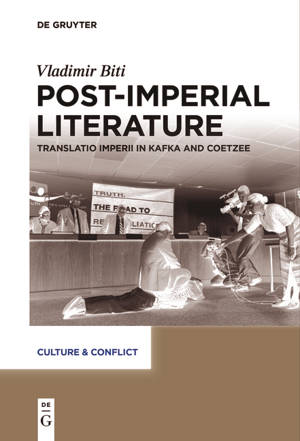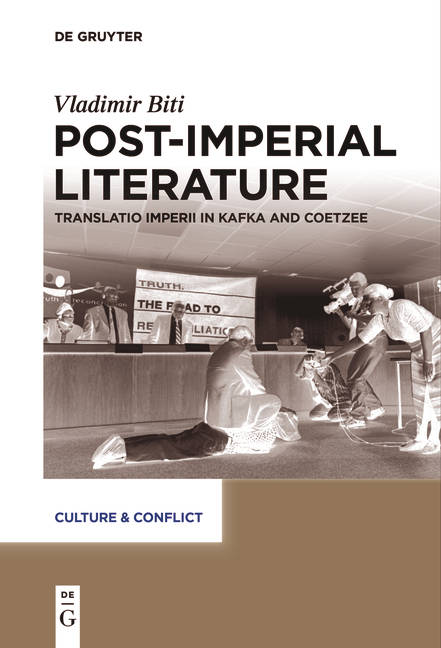
- Afhalen na 1 uur in een winkel met voorraad
- Gratis thuislevering in België vanaf € 30
- Ruim aanbod met 7 miljoen producten
- Afhalen na 1 uur in een winkel met voorraad
- Gratis thuislevering in België vanaf € 30
- Ruim aanbod met 7 miljoen producten
Zoeken
€ 141,95
+ 283 punten
Uitvoering
Omschrijving
This book proposes a new departure point for the investigation of transnational literary alliances: the traumatic constellation of translatio imperii, which followed the dissolution of the East-Central European empires in the 1920s and the crumbling of the West European colonial empires in the 1950s. To prevent their breakdown, the former transitioned from a 'sovereign' to a 'disciplinary' mode of administration of their peripheries, the latter from the merciless assimilation of their colonial constituencies to their affirmative regeneration. This book treats Franz Kafka as the writer of the first transition, prefiguring J. M. Coetzee as the writer of the second. In a series of close readings, it investigates the particular ways in which the restructuring of power relations between the agencies in their fictions is a response to the delineated post-imperial reconfiguration of the new countries' governmental techniques. By displacing their narrative authority beyond the reach of their readers, they laid bare the sudden withdrawal of transcendental guarantees from the world of human commonality. This entailed an unstable and elusive configuration of their fictional worlds as a key feature of post-imperial literature.
Specificaties
Betrokkenen
- Auteur(s):
- Uitgeverij:
Inhoud
- Aantal bladzijden:
- 276
- Taal:
- Engels
- Reeks:
- Reeksnummer:
- nr. 20
Eigenschappen
- Productcode (EAN):
- 9783110737288
- Verschijningsdatum:
- 8/11/2021
- Uitvoering:
- Hardcover
- Formaat:
- Genaaid
- Afmetingen:
- 152 mm x 231 mm
- Gewicht:
- 589 g

Alleen bij Standaard Boekhandel
+ 283 punten op je klantenkaart van Standaard Boekhandel
Beoordelingen
We publiceren alleen reviews die voldoen aan de voorwaarden voor reviews. Bekijk onze voorwaarden voor reviews.











